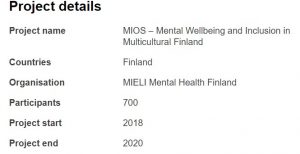Written by: Federica Mazelli
Reading time: 10 minutes
The ESF is Europe’s main job-supporting instrument, ensuring that all EU citizens have equal access to job opportunities. It works by putting money into Europe’s human capital – its workers, young people, and job seekers. ESF funding of EUR 10 billion per year is helping millions of Europeans find work.
The European Union is committed to creating more and better jobs and as well as a society that is more socially inclusive. These objectives are at the heart of the EU’s Europe 2020 strategy for smart and inclusive growth. The current economic crisis has increased the difficulty of this task. The ESF is playing an important role in meeting Europe’s goals, and in mitigating the consequences of the economic crisis.
Setting priorities
The ESF’s aims and how it spends its resources are determined by a cooperation between the European Commission and EU governments. One of the top priorities is to improve the flexibility of new-skilled people and businesses. Other priorities include assisting young people in making the transition from school to work, as well as training less-skilled job seekers to improve their job prospects. Many ESF projects include vocational training and lifelong learning opportunities to help people gain new skills.
Another priority focuses on helping people from disadvantaged groups to get jobs. This is part of improving social inclusion,’ a sign of the critical role that works play in assisting people’s integration into society and daily life. The financial crisis has resulted in a redoubling of efforts to keep people employed or to assist them in quickly returning to work if they lose their jobs.

People’s projects
The ESF is not a recruitment firm and does not advertise job positions. Rather, it sponsors tens of thousands of local, regional, and national job-related projects throughout Europe, ranging from small neighborhood charities assisting local disabled persons in finding suitable employment to large-scale organizations promoting vocational training for the entire population.
ESF programs vary widely in terms of form, scale, and goals, and they serve a wide spectrum of target populations. Education systems, teachers, and students are targeted, as are young and older job seekers, as well as potential entrepreneurs from all walks of life.
How to participate
The ESF supports a wide range of projects that help people improve their career chances and the jobs they do. ESF projects are applied for and managed by a wide range of organizations known as beneficiaries, including government agencies, labor unions, NGOs, charities, and businesses.
Participants are people who take part in an ESF project; they could be older workers learning new skills, young job seekers gaining work placements, or those seeking assistance on how to start their own businesses.
Projects
The ESF is funding tens of thousands of projects across the Union that make a real difference in the lives of millions of individuals. Here you can find some examples.
‘’Hungary provides tailored support to help thousands of people with disabilities to find work’’
Chronic sickness and disability might make it considerably more difficult to find work. That is why, with the backing of the European Social Fund (ESF), Hungary’s National Institute for Social Policy developed a programme that provides targeted employment assistance to people with impairments. Since its inception in 2015, the project has had a network of counselors in 42 locations across the country. They provide a variety of individualized coaching and support activities for people with health concerns or disabilities, to assist them in finding long-term, fulfilling jobs that meet their specific needs.
‘Supporting People With Disabilities’ also works with local businesses to help people with chronic health problems find work. By providing a variety of planning and implementation help, the project strives to make satisfying the demands of both employers and employees as simple as feasible.


‘’Better mental wellbeing encourages social inclusion’’
MIOS (Mental Wellbeing and Inclusion in Multicultural Finland) is a programme that aims to help persons who have recently moved to Finland improve their mental health. A person’s mental health allows them to take active efforts toward getting involved in local activities, finding work, and forming a social network — all of which are necessary building blocks for inclusion and integration.


ESF Social Innovation+
The ESF Social Innovation+ program aims to make innovative solutions to today’s society’s concerns easier to transfer and scale-up. The program intends to extend best practices in domains such as employment, education, skills, and social inclusion across Europe by fostering transnational cooperation.
ESF Social Innovation+ has a budget of €197 million for the 2021-2027 programming term, which is administered under indirect management (i.e., executed by an ESF agency on behalf of the European Commission).
Finally, the European Social Fund+ (ESF+) will continue to support social innovation through a variety of measures, and Member States are encouraged to use ESF money to assist social innovation through specific activities in their own national/regional contexts.

Content Creator and Partner-event manager
“Federica is passionate about gender equality, human rights and social issues. During her studies in political sciences, international relations at the University of Bologna, Federica worked in the largest youth-run organization with the aim of developing the leadership of young people, through practical experiences in challenging environments. In her organizational role, she contributes to social issues, in particular to the achievement of the UN Sustainable Development Goals, with a positive impact on youth entrepreneurship. With her work, Federica wants to bring her generation closer to world issues and make them part of active change giving them a call to action.”
BIBLIOGRAPHY


